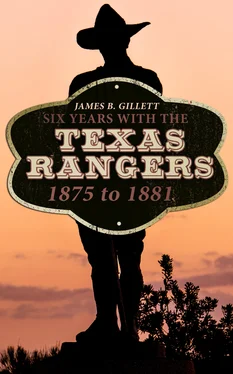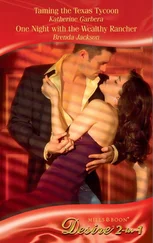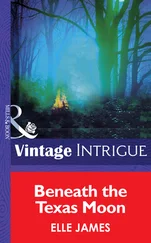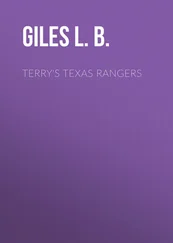James B. Gillett - Six Years With the Texas Rangers - 1875 to 1881
Здесь есть возможность читать онлайн «James B. Gillett - Six Years With the Texas Rangers - 1875 to 1881» — ознакомительный отрывок электронной книги совершенно бесплатно, а после прочтения отрывка купить полную версию. В некоторых случаях можно слушать аудио, скачать через торрент в формате fb2 и присутствует краткое содержание. Жанр: unrecognised, на английском языке. Описание произведения, (предисловие) а так же отзывы посетителей доступны на портале библиотеки ЛибКат.
- Название:Six Years With the Texas Rangers: 1875 to 1881
- Автор:
- Жанр:
- Год:неизвестен
- ISBN:нет данных
- Рейтинг книги:3 / 5. Голосов: 1
-
Избранное:Добавить в избранное
- Отзывы:
-
Ваша оценка:
- 60
- 1
- 2
- 3
- 4
- 5
Six Years With the Texas Rangers: 1875 to 1881: краткое содержание, описание и аннотация
Предлагаем к чтению аннотацию, описание, краткое содержание или предисловие (зависит от того, что написал сам автор книги «Six Years With the Texas Rangers: 1875 to 1881»). Если вы не нашли необходимую информацию о книге — напишите в комментариях, мы постараемся отыскать её.
Six Years With the Texas Rangers: 1875 to 1881 — читать онлайн ознакомительный отрывок
Ниже представлен текст книги, разбитый по страницам. Система сохранения места последней прочитанной страницы, позволяет с удобством читать онлайн бесплатно книгу «Six Years With the Texas Rangers: 1875 to 1881», без необходимости каждый раз заново искать на чём Вы остановились. Поставьте закладку, и сможете в любой момент перейти на страницу, на которой закончили чтение.
Интервал:
Закладка:
When fishing opened up in the spring of 1869 I returned to my fishing lines, and in the fall of the same year I bought a double-barreled shotgun for $12. With it I killed quail, ducks and other small game, all of which I sold on the streets of Austin. By the fall of 1870 I was fourteen years old and could handle a gun rather well for one of my age. Early that winter wild geese came south by the hundreds. I used to hunt them down the Colorado River, ten or twelve miles below Austin. The birds would feed in the corn fields in the early morning, then flock to the sand bars in the river during the middle of the day. There was nothing silly about those geese, for they were smart enough to frequent only the big islands, three or four hundred yards from any cover. It was impossible to reach them with any kind of a shotgun. I used to slip up to them as close as I could and watch them for hours, trying to think of some plan to get within gun shot of them. I saw as many as a thousand geese on those bars at a single time. I have thought regretfully of those birds many times since, and have wished I could have shot into one of those flocks with a modern rifle—I could have killed a dozen geese at a shot.
In the spring of 1871 I had my first trip to the frontier of Texas. My father traded some of Ms Grimes County pine land for a bunch of cattle in Brown County, and took me with him when he went to receive the herd. This was the first time I had ever been twenty-five miles from Austin. I was delighted with the trip, the people, and the country. Those big, fine frontiersmen, each wearing a pair of six-shooters and most of them carrying a Winchester, fired my boyish imagination. Their accounts of frontier life and their Indian tales fascinated me. I wanted to stay right there with them and lost all interest in ever living in town again. During the same year my father drove several bunches of cattle to Austin and I helped him on those drives. Thus I began to be a cowboy,—my first step toward the life of the open, upon which I had set my heart.
In the summer of 1872 my mother's health began to fail and my father took her to Lampasas Springs. The water seemed to help her so much that he decided to make Lampasas our home. At that time Lampasas County was strictly a cattle country, but there was not much cow hunting during the winter in those days. The cattlemen and the cowboys spent a good deal of time in town just having a good time. During this period I became well acquainted with them. In the spring of 1873 my father made a trip back to Austin on some business. The frontier had been calling to me ever since my first visit there, and I now took advantage of my father's absence to slip out to Coleman County, at that time on the frontier of Texas.
Monroe Cooksey and Jack Clayton had bought a bunch of cattle in Coleman County and I saw the outfit when it left Lampasas. I was slightly acquainted with most of the men in this outfit, so I decided to follow it and try to get work. It was an Indian country every step of the way, and I was afraid to make the trip alone. In a day or two I met a man named Bob McCollum. He was hauling a load of flour to Camp Colorado and let me travel with him. I bade my mother and sisters good bye and did not see them again until the next December.
We reached old Camp Colorado without mishap in about five days. Clayton and Cooksey's outfit was there loading up supplies for the spring work. I stood around watching the cowboys making their preparations, but lacked the courage to ask them for work. Finally, the outfit started down on Jim Ned Creek to camp for dinner. I went with the men and at last got up spunk enough to ask Mr. Monroe Cooksey for a job. He looked at me for a minute and then asked, "What kind of work can a boy of your size do?"
I told him I was willing to do anything a boy of my age could do. He made no reply and we went on and camped for dinner. After dinner the men made ready to go over on Hoard's Creek to camp for the night. The boys made a rope corral and began to catch their mounts. I just stood there like an orphan watching them. Presently Mr. Cooksey dashed his rope on a heavy set bay horse. The animal showed the whites of his eyes, made a rattling noise in his nose and struggled so violently that it took three men on the rope to hold him. Mr. Cooksey then turned to me and said, "Here, boy, if you can ride this * * * (giving an unmentionable name to the horse) you have a job cinched."
I turned, grabbed my saddle, bridle and blanket and started to the animal. An elderly man in the outfit headed me off.
"Young man," he said, "this is an old spoiled horse, and unless you are a mighty good rider you had better not get on him."
I brushed him aside.
"Pshaw, I'm hunting work, and while I'm not a broncho buster, I will make a stab at riding him if he kills me."
By this time one of the boys had caught the horse by both ears and was holding him fast. They threw my saddle on him, tightened up the cinch, and finally, after much trouble, got the bridle on him and lifted me into the saddle. When I had fixed myself as best I could they let the animal go. He made two or three revolting leaps forward and fell with his feet all doubled up under him.
Mr. Cooksey seemed to realize the danger I was in, and shouted to me to jump off. Before I could shake myself loose the old horse had scrambled to his feet and dashed off in a run. I circled him around to the remuda and rode him until night without further trouble. I had won my job, but it was a dirty trick for a lot of men to play on a boy, and a small boy at that. However, to their credit, I wish to say they never put me on a bad horse again but gave me the best of gentle ponies to ride.
Our first work was to gather and deliver a herd of cattle to the Horrell boys, then camped on Home Creek. We worked down to the Colorado River, and when we were near old Flat Top ranch the men with the outfit left me to drive the remuda down the road after the mess wagon while they tried to find a beef. I had gone only a mile or two when I saw a man approaching me from the rear. As he came up I thought he was the finest specimen of a frontiersman I had ever seen. He was probably six feet tall, with dark hair and beard. He was heavily armed, wearing two six-shooters and carrying a Winchester in front of him and was riding a splendid horse with a wonderful California saddle. He rode up to me and asked whose outfit it was I was driving. I told him Cooksey and Clayton's. He then inquired my name. When I told him he said, "Oh, yes; I saw your father in Lampasas a few days ago and he told me to tell you to come home and go to school."
I made no reply, but just kept my horses moving. The stranger then told me his name was Sam Gholston. He said it was dangerous for one so young to be in a bad Indian country and unarmed, that the outfit should not have left me alone, and counselled me to go back to my parents. I would not talk to him, so he finally bade me good bye and galloped off. His advice was good, but I had not the least idea of going home—I had embraced the frontier life.
The Cooksey and Clayton outfit did not stay in the cow business long. After filling their contract with the Horrell boys they sold out to Joe Franks. I suppose I was sold along with the outfit, at least I continued to work for Mr. Franks. A kinder heart than that of Joe Franks never beat in a human breast. He was big of stature and big of soul. He seemed to take an interest in his youthful cowpuncher, and asked me where I was raised and how
I came to be away out on the frontier. As cold weather came on that fall he gave me one of his top coats. It made a pretty good overcoat for me and came down quite to my knees. The sleeves were so long I could double them up and hold my bridle reins, and in one garment I had both coat and gloves.
During the summer of 1873 John Hitsons, Sam Gholston and Joe Franks were all delivering cattle to old John Chislom, whose outfit was camped on the south side of the Goncho River, about where the town of Paint Rock now stands. The other outfits were scattered along down the river about half a mile apart. There were probably seventy-five or a hundred men in the four camps and at least five hundred horses. One evening just after dark the Indians ran into Gholston's outfit, captured about sixty head of horses and got away with them. The redskins and the cowboys had a regular pitched battle for a few moments, probably firing two hundred shots. This fight was in plain view of our camp and I saw the flash of every gun and heard the Indians and the cowboys yelling. One of Mr. Gholston's men received a flesh wound in the leg and several horses were killed. Two nights later the Indians ran upon Franks' outfit and tried to take our horses. Bob Whitehead and Pete Peck were on guard and stood the redskins off. We saved our horses by keeping them in a pen for the remainder of the night. I was beginning to get a taste of frontier life early in the game.
Читать дальшеИнтервал:
Закладка:
Похожие книги на «Six Years With the Texas Rangers: 1875 to 1881»
Представляем Вашему вниманию похожие книги на «Six Years With the Texas Rangers: 1875 to 1881» списком для выбора. Мы отобрали схожую по названию и смыслу литературу в надежде предоставить читателям больше вариантов отыскать новые, интересные, ещё непрочитанные произведения.
Обсуждение, отзывы о книге «Six Years With the Texas Rangers: 1875 to 1881» и просто собственные мнения читателей. Оставьте ваши комментарии, напишите, что Вы думаете о произведении, его смысле или главных героях. Укажите что конкретно понравилось, а что нет, и почему Вы так считаете.












